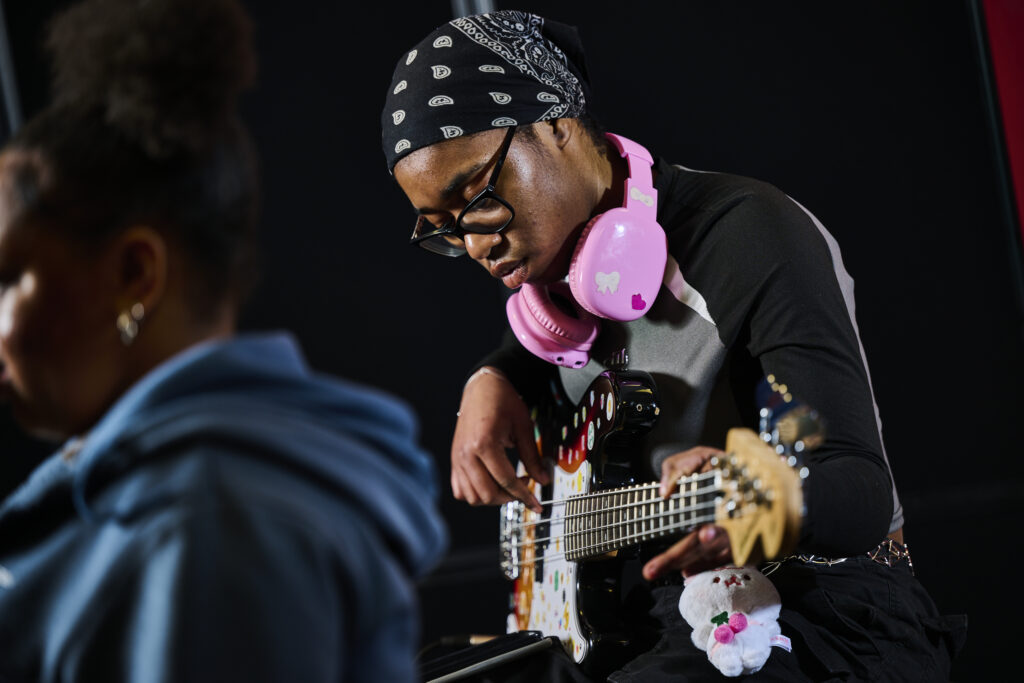Early modern history A Level is for high-achieving and passionate GCSE leavers, who have an interest in History and who wish to grow their written, critical thinking and evaluative judgement skills with a view to pursuing University education, degree apprenticeships or careers in Law, the Civil Service, Journalism etc. It often goes well with Politics, Law, Sociology or English courses, but many students study a broad range of additional subjects depending on their skillsets.
In Early Modern History a mix of traditional and more interactive teaching methods are used, such as class discussions, debates, presentations, independent research & investigations, use of media, group work and trips.
You’ll study two key periods in Britain and France, focusing on rulers, their personalities and their impact.
The first taught unit looks at the reigns of the Tudor family between 1485-1603, encompassing the often erratic personalities of Henry VIII and his six wives, as well as Elizabeth I, the first effective female ruler of England. There is a focus on broad change over time as this our breadth unit.
The second taught unit covers 1774-1815, examining the transformation of discontent in France into the French Revolution and the subsequent the rule of Napoleon. This period in History marks a significant turning point in Western Europe which continues to condition the political, economic and social norms we build much of our contemporary society on today, namely a grounding in freedom & individualism. There is a focus on the impact of specific events as this our depth unit.
For the coursework component you’ll examine change over the Stuart period (1603-1714), when Britain turned from four kingdoms into one. This was a watershed moment of change from being ruled by monarchs to being ruled by representatives of the people.
Modules:
Year 1:
- 1C The Tudors (1485-1603): Topics include…
- Henry VII from 1485–1509 (Consolidation of Power, Government, Relationships with Scotland and other foreign powers, Securing the Succession, Social Discontent and Rebellions, Economic Development, Religion & Humanism)
- Henry VIII, 1509–1547 (Character and Aims, Government, Relationships with Scotland and other foreign powers, Securing the Succession, Society & Rebellion, Economic Development, Religion & Reform of the Church
- The Mid-Tudor Crisis, 1547–1563: Edward VI, Somerset and Northumberland, Religious and economic changes under Edward VI, Rebellion, Mary I & Problems of Succession, Religious and economic changes under Mary I, Rebellion, Elizabeth 1’s consolidation of power, Economic, social and religious developments in the early years of Elizabeth’s rule
- The triumph of Elizabeth, 1563–1603: Government, Foreign Affairs, Mary Queen of Scots, Relations with Spain, Social discontent and Rebellions, Economic Development, Religious Developments, the English renaissance and ‘the Golden Age’ of Art, Literature and Music, The last years of Elizabeth
Year 2:
- 2H France in Revolution (1774-1815): Topics include…
- The origins of the French Revolution, 1774–1789: Absolutism and the structure of the Ancien Régime: Louis XVI as King; The ideas of the Enlightened philosophes, Impact of the American revolution and War of Independence, Economic problems and royal finance, The Assembly of Notables and Political Developments, February 1787 to May 1789
- The experiment in constitutional monarchy, 1789–1792: May-October Revolution 1789, the Great Fear & the October Days, Attempts to establish a constitutional monarchy, Reaction to change internally and externally, Sans-culottes and the collapse of the constitutional experiment
- The emergence and spread of the Terror, September 1792–1795: The establishment of a Republic, Internal and external war, Robespierre, the fall of the Girondins and the Federalist revolt, The progress of the war & the coming of the Terror, The spread of the Terror, Executions & the influence of Robespierre, Robespierre’s fall and the collapse of the Terror
- The Directory and Napoleon’s rise to power, 1795–1799: The aftermath of the Terror, the 1795 Parisian risings, The establishment of the Directory, Military campaigns and expansion abroad, Napoleon’s contribution to French success in Italy & Egypt, The coup of Brumaire and the establishment of the Consulate
- The impact of Napoleon’s rule on France, 1799–1815: Political change & Napoleon’s consolidation of power, Establishment of Emperor status, Social change in class, education, attitude to women, propaganda and the position of the Church, Legal & administrative change including the Napoleonic codes, Financial & economic policies and problems
- The impact of Napoleon’s rule on Europe, 1799–1815: The army and conquest during the consulate and Empire, The control of the Grand Empire, Challenges to the Empire including the Peninsular War & the Russian campaign, The collapse of the Empire, Napoleon’s abdication and second Peace of Paris, Napoleon’s reputation and legacy
NEA Coursework Component on Stuart Britain (1603-1714): Enables students to develop an enhanced understanding of the nature and purpose of history as a discipline and how historians work, expanding on their research skills, and deploying primary source & evaluation of historians analytical skills honed in the first two components.
















